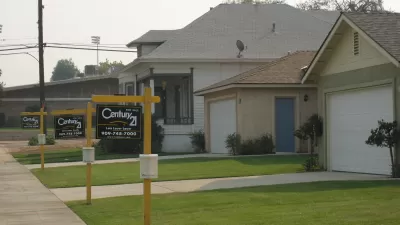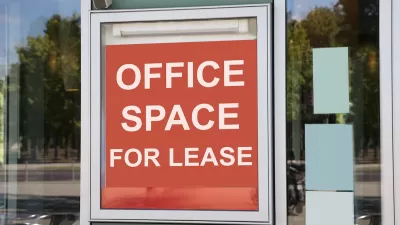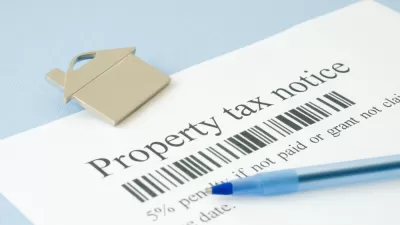An organization tasked with oversight of the accounting methods of government agencies will require local governments to report the value of property, sales, and income tax breaks.
Theo Francis reports on the details of a rule approved earlier this week by the Governmental Accounting Standards Board (GASB) to "require government officials to show the value of property, sales and income taxes that have been waived under agreements with companies or other taxpayers." The rule will take effect next year.
A sample of the kind of information that will be reported as a result of the new report:
Shelby County, Tenn., which includes the city of Memphis, waived about $48.7 million in property taxes last year, equivalent to 6.5% of its property tax receipts. Chicago channeled $372 million to nearly 150 special taxing districts in 2014, or $1 for every $13 of property taxes billed in the city, according to figures from the Cook County clerk’s office, which collects city taxes. Before it was shut down in 2012, a major California tax-incentive program sent about 12% of statewide property taxes to redevelopment agencies—and more than 25% in some counties—often benefiting private industry.
That information, according to Francis, shows how discounted property taxes, in their many forms, quickly pile up for local governments.
For the uninitiated, the GASB is an independent organization that establishes and improves standards of accounting and financial reporting for U.S. state and local governments. According to the group's website, the GASB is recognized by governments, the accounting industry, and the capital markets as the official source of generally accepted accounting principles (GAAP) for state and local governments [pdf].
FULL STORY: New Rule to Lift Veil on Tax Breaks

Alabama: Trump Terminates Settlements for Black Communities Harmed By Raw Sewage
Trump deemed the landmark civil rights agreement “illegal DEI and environmental justice policy.”

Planetizen Federal Action Tracker
A weekly monitor of how Trump’s orders and actions are impacting planners and planning in America.

The 120 Year Old Tiny Home Villages That Sheltered San Francisco’s Earthquake Refugees
More than a century ago, San Francisco mobilized to house thousands of residents displaced by the 1906 earthquake. Could their strategy offer a model for the present?

Indy Neighborhood Group Builds Temporary Multi-Use Path
Community members, aided in part by funding from the city, repurposed a vehicle lane to create a protected bike and pedestrian path for the summer season.

Congestion Pricing Drops Holland Tunnel Delays by 65 Percent
New York City’s contentious tolling program has yielded improved traffic and roughly $100 million in revenue for the MTA.

In Both Crashes and Crime, Public Transportation is Far Safer than Driving
Contrary to popular assumptions, public transportation has far lower crash and crime rates than automobile travel. For safer communities, improve and encourage transit travel.
Urban Design for Planners 1: Software Tools
This six-course series explores essential urban design concepts using open source software and equips planners with the tools they need to participate fully in the urban design process.
Planning for Universal Design
Learn the tools for implementing Universal Design in planning regulations.
Clanton & Associates, Inc.
Jessamine County Fiscal Court
Institute for Housing and Urban Development Studies (IHS)
City of Grandview
Harvard GSD Executive Education
Toledo-Lucas County Plan Commissions
Salt Lake City
NYU Wagner Graduate School of Public Service





























